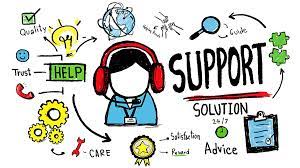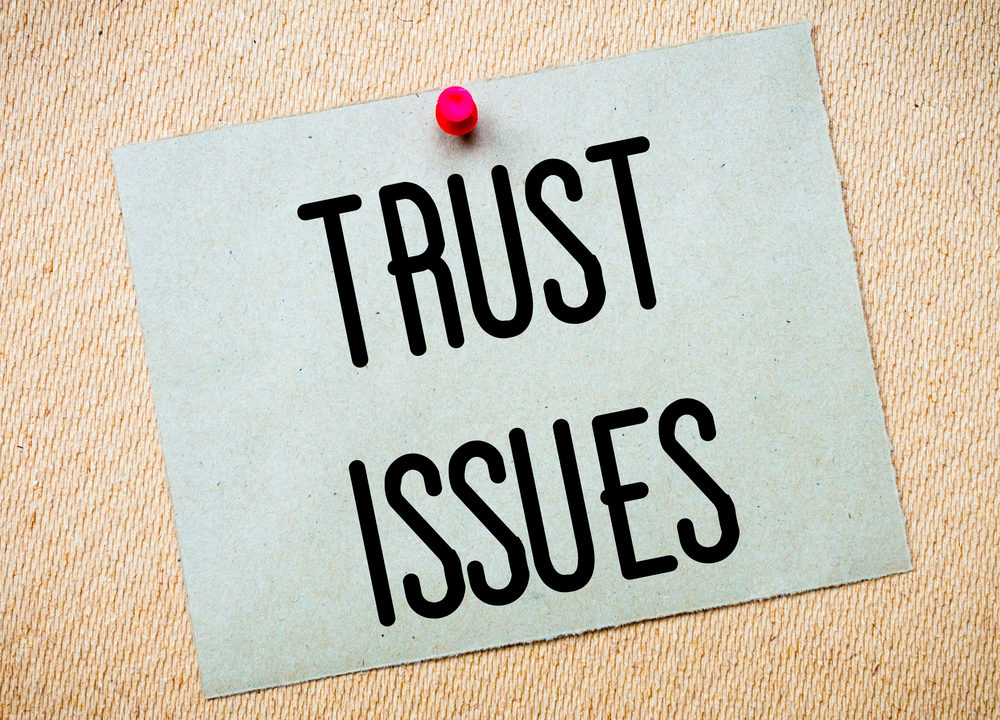Trust is a huge issue for many people. It can be hard to trust someone completely, especially if that person has hurt you in the past. Trust is essential in any relationship, whether it be with a friend, family member, or romantic partner. Without trust, the relationship falls apart. In this blog post, we will discuss what trust issues mean, their causes, effects, and ways to heal them.
Contents
What Are Trust Issues?

Trust is described as the feeling of safety, belief, honesty, and reliability in someone else. Sometimes, these feelings are not reciprocated, or in some cases, disrespected. This leads to a sense of betrayal, hurt, or anger. It can often get difficult to regain these feelings. This difficulty in rebuilding the feeling of trust is what we call trust issues.
These problems arise when someone has difficulty moving on from the past. They are unable to process the hurtful feelings and form new relationships. This can cause a lot of obstacles in the path of establishing a successful social/personal/professional life. These behaviors can also be problematic for the people around them as it gets difficult to deal with their apprehensions and doubts.
Signs Of Trust Issues

Although there is no set criterion for judging whether one has trust issues or not, some common behaviors and patterns observed in those having highly prevalent trust issues are:
- Inability to forgive and forget the past transgressions of others.
- Regularly feeling anxious or suspicious around people, even those close to them.
- Being very critical of others and further looking for evidence of deceitfulness or wrong-doing.
- Withdrawing from relationships, social activities, or work projects out of fear of being hurt again.
- Feeling like they are constantly on guard, watching for any clues that someone might betray them.
- Wanting to be in charge of every little thing and not letting anybody else help or contribute due to the fear of losing control.
- Overthinking and critically analyzing even the smallest of details over and over
- staying in their comfort zones. This can look like social isolation, being alone even in social/professional settings, and extreme introversion, among other things.
What Causes Trust Issues?
People aren’t born with trust issues. They develop gradually as experiences cumulatively expand their impact on a person’s life. Some of the most commonly observed causes of trust issues are discussed below.
- Infidelity is the most reported reason behind trust issues. Having a partner who has cheated on you can cause difficulty forming trustworthy and fulfilling relationships with subsequent partners.
- Witnessing difficulties within the family can make an individual skeptical of trusting others. These betrayals may look like frauds over property, fights in marital relationships, monetary disputes, etc.
- Facing disloyalty in friendships can make a person feel doubtful and make it difficult to find new friends.
- Experiencing betrayals at the workplace from colleagues impacts the way an individual performs professionally and in a team.
- Traumatic events such as bullying, assault, or theft can lead to increased anticipation of negativity, which makes it hard for an individual to remain trustful of their environmental or social surroundings.
Impacts Of Trust Issues
The impact of trust issues can be debilitating. They often have far-reaching consequences that can be both personal and professional. It shapes our ability to have trustful and prosperous relationships in all aspects of life.
Some of the common personal impacts of trust issues are:
- Increased paranoia; which can lead to anxiety disorders
- Lack of commitment and intimacy in romantic relationships
- Overthinking and racing thoughts
- Difficulty in performing in a group/team
- Attachment and abandonment issues
- Reduced quality of social relationships due to low trust
- Higher tendencies to pick up arguments because of skepticism
- Low self-confidence
- Being easily jealous/envious of others
- An increased tendency to sabotage existing relationships to avoid being hurt
- Urge to always be in control; which can lead to toxic perfectionism
- Increased clinginess and unhealthy dependence on particular people. This can further prove to be emotionally draining and cause mental fatigue for the other person(s).
These impacts often lead to a vicious cycle of overlapping symptoms and further make an individual vulnerable to a variety of underlying issues and even mental disorders.
How To Overcome Trust Issues?

Although it may seem daunting, there are ways to overcome trust issues. These ways can be administered either through self-work or therapeutic intervention.
Therapy
Therapy can be an extremely effective way to work through trust issues. Often, trust issues stem from some sort of trauma or negative experience in one’s past. In therapy, individuals can explore those experiences in a safe and supportive environment. This can also help them to understand the root cause of their mistrust and learn how to better cope with it. Some commonly used techniques in therapy include names such as:
Self Help Tips
- The first crucial step for healing trust issues is acknowledging that you have them. However, it doesn’t mean you are weak or broken.
- Processing and accepting the past trauma is necessary to further work on your present happenings.
- Start by learning to trust yourself. It is important to have a strong sense of self-awareness to ensure your capacity and expectations.
- Having firm boundaries can moreover help in testing your beliefs.
- Learning to let go of the past is important. This can help you to completely focus on your present relationships instead of diverting your energy and thoughts.
- Expressing gratitude to the ones present in your life can fill your mind with positivity
- Being expressive about your expectations from those around you helps in effective communication and plan of action, further advocating for cordial relationships.
- Keeping track of your thoughts and progress through techniques such as journaling or meditating helps in enhancing self-love and compassion.
- Take things slowly, one at a time. Don’t expect overnight progress. Being gentle with yourself is important for overall growth.
Conclusion
Trust issues can arise due to feeling insecure or having low self-esteem. These issues can cause a lot of problems in relationships, as they make it difficult for people to open up and share their feelings. Trust issues can also lead to fights and arguments, as well as a lack of intimacy. Ultimately, the most important thing is to be patient and take things one step at a time. With time and effort, it is possible to overcome trust issues. People who seek help are also able to regain a sense of trust in others. This improves their relationships and overall sense of well-being.
A Word From Therapy Mantra
Your mental health — Your psychological, emotional, and social well-being — has an impact on every aspect of your life. Positive mental health essentially allows you to effectively deal with life’s everyday challenges.
At TherapyMantra, we have a team of therapists who provide affordable online therapy to assist you with issues such as depression, anxiety, stress, workplace Issues, addiction, relationship, OCD, LGBTQ, and PTSD. You can book a free therapy or download our free Android or iOS app.


